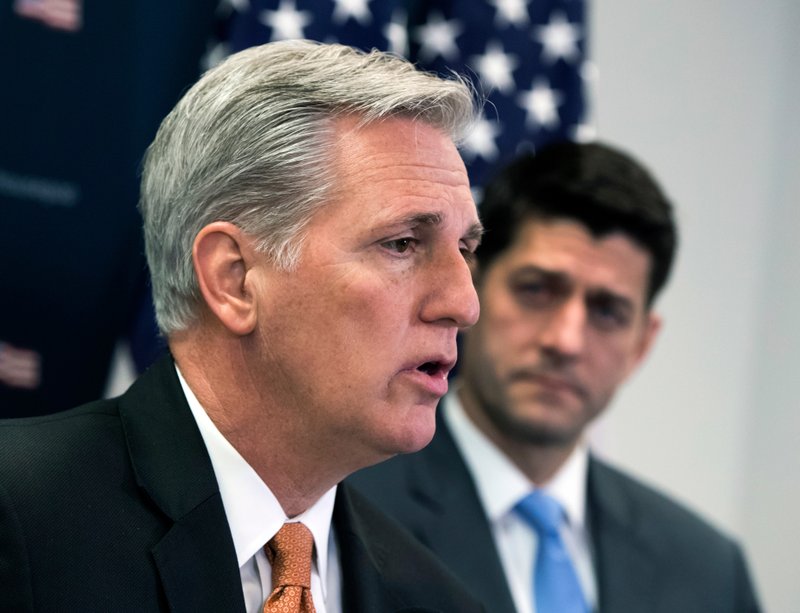
FILE - In this Feb. 6, 2018, file photo, House Majority Leader Kevin McCarthy, R-Calif (Photo: AP)
Washington (People's Daily) - The US House of Representatives passed the Foreign Investment Risk Review Modernization Act on Tuesday, which aims to strengthen the Committee on Foreign Investment in the US (CFIUS) and its goal of reviewing security implications of overseas investments.
The CFIUS, which is an inter-agency panel led by the US Department of the Treasury, has previously had similar overhauls granted by the US Senate, providing provisions along with the 2019 National Defense Authorization Act.
US House Majority Leader Kevin McCarthy released a statement on the CFIUS reforms on Tuesday, saying it will improve mechanisms to ensure America’s economic well-being and safety.
“This bill will protect American innovation and intellectual property by improving the review of investment in industries that are important to our national security,” McCarthy said. “It also will update our export controls to ensure that sensitive technology and information with military applications do not fall into the hands of our near-peer adversaries.”
On the House floor prior to the vote, US House Foreign Affairs committee Chairman Ed Royce said that the bill strengthens national security reviews of “certain commercial transactions conducted by CFIUS” and reforms and modernizes the “outdated US export control regime.”
Legislators made it clear that this piece of legislation is aimed at tightening the assessment of investments from China. However, the bill has also caused suspicion from the business world that it might become a tool for protectionism. According to Reuters, the earlier overhaul version that was passed by the US Senate eliminated several measures that were seen as “too tough” by US tech companies.
Apart from strengthening CFIUS, the White House is reportedly considering extra executive actions to limit investments from China. US President Donald Trump said on Tuesday that sensitive US technology can be protected from acquisition by China through CFIUS, but the ultimate method was still being worked out.


